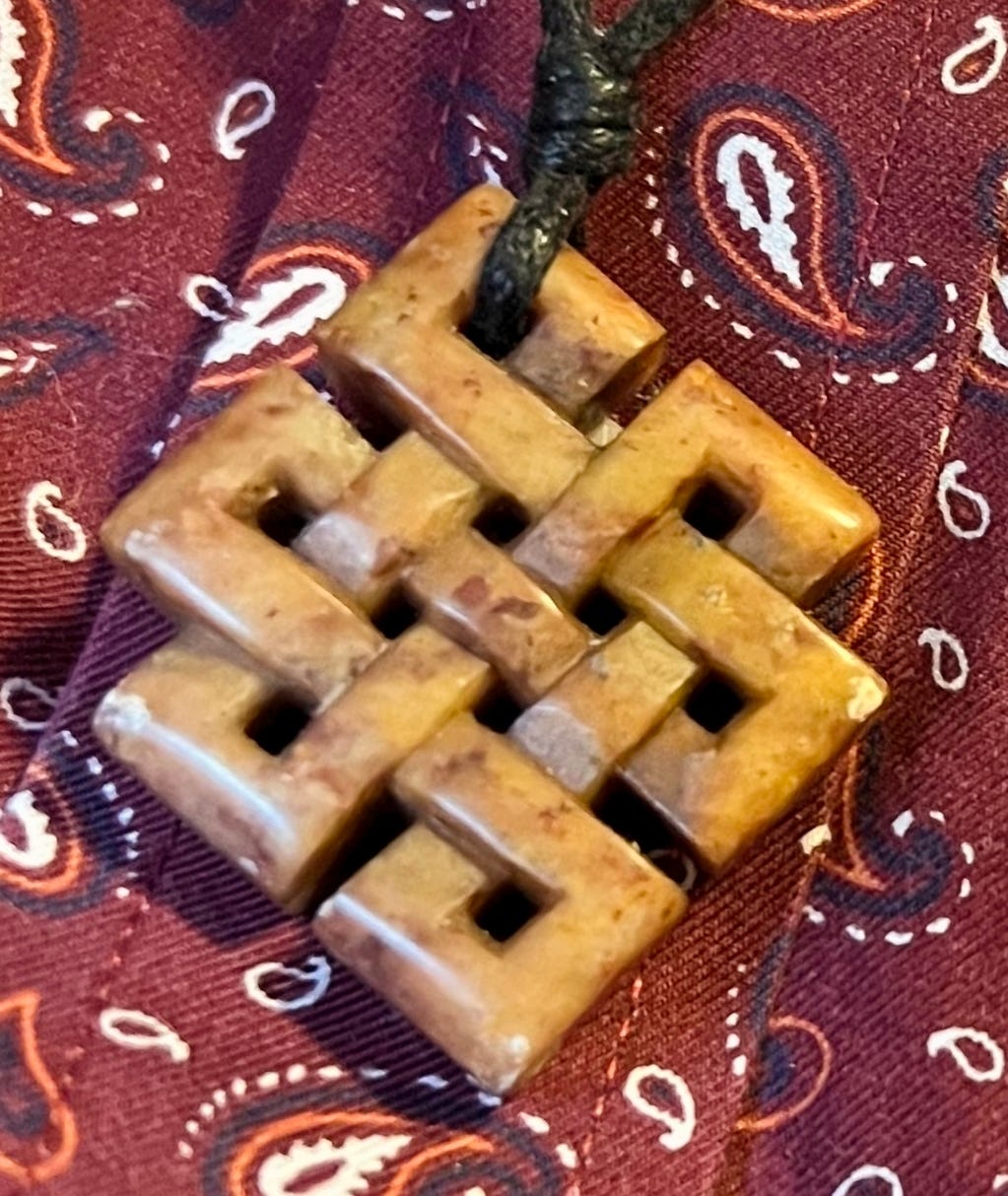One Buddhist's Reaction to Trump's Victory
Love, patience...and a vow to be peaceful, without hate, and fearless
If we only practice love and protect it with patience, everything else will be accomplished. —Garchen Rinpoche
It’s tempting to feel anger and despair that the majority of voters in the United States have given a clear mandate to a leader and team that seem eager to oppose the aspirational values many of us hold dear. But the dharma and my lived experience inform me that love and patience reduce suffering while anger and despair increase it. That’s why I led with the quote above.
Still, love and patience may not be enough when one sees immediate suffering. As a Vajrayana Buddhist, I never lose my understanding that the interconnected karma of all beings makes the world precisely what it needs to be. Nevertheless, some times call for a state beyond love and patience—a quality that leads us to stand up against actions that cause suffering.
I found a name for that quality in Verse 258 of the Dhammapada collection of the Buddha’s sayings as translated by Gil Fronsdal:
One is not wise Only because one speaks a lot. One who is peaceful, without hate, and fearless Is said to be wise.
While love and patience accomplish everything, sometimes one is called on to be fearless in speaking the truth or acting out to give karma a little nudge toward actions that are more skillful to reduce suffering. We can help light the way to a better outcome.
Here’s a quotation from Kamala Harris’s November 6 concession speech:
There's an adage a historian once called a law of history, true of every society across the ages. The adage is, only when it is dark enough can you see the stars. I know many people feel like we are entering a dark time, but for the benefit of us all, I hope that is not the case. But here's the thing, America, if it is, let us fill the sky with the light of a brilliant, brilliant billion of stars.

So, I made a list of ways in which I could be fearless as well as loving and patient:
Explaining to all who will listen that my father (in 1921) and my maternal grandparents (around 1900) found refuge in the United States from forced labor, persecution, and pogroms committed against Jews in Eastern Europe. They, and immigrants with many other religious and ethnic backgrounds (including Palestinians), found compassion here and gratefully contributed to their new homeland.
Telling the truth in the face of deception and misinformation. To do that with integrity, I need extra fearlessness when misinformation comes from my friends and allies. I am no fan of Donald Trump and his enablers, but the things he has said are terrible enough without embellishing them.
Donating time and money to programs that promote love and understanding across the boundaries of class, race, ethnicity, nationality, education level, political ideology, religion, and so on.
Reminding myself time and again that the people I disagree with are mistaken rather than evil, and I can’t even be certain they are mistaken.
Wearing symbols that might invite questions to begin a dialogue. The photo below is my endless knot that often opens discussions about Eastern religion, the interconnectedness of all things, and Indra’s Net.
Speaking up against generalizations about any group of people:
Trump supporter ≠ racist.
Harris supporter ≠ elitist.
Immigrant ≠ criminal.
Immigrant ≠ angel.
Being “white” ≠ oppressor.
Being “black” ≠ victim.1
Birth in one ethnic group ≠ inability to understand the emotions of another.
Capitalist ≠ hater.
Socialist ≠ lover.
I could list many more of these, but I’ll conclude the list with one close to my heart: Being an old, straight, “white” man doesn’t make me complicit in all of society’s ills.
One who is peaceful, without hate, and fearless Is said to be wise.
I’ll thank both the Buddha and translator Gil Fronsdal for those words. They express what I—and any of us—can do. Being peaceful and without hate are states of mind. They could be considered passive. Being fearless sometimes implies taking action visible to others.
I know what it’s like to be canceled for expressing my beliefs. You can read my account of that here if you are ready for a very long (true) story. But I’m still not afraid when I feel a moral need to express an opposing point of view. That’s why I call myself a contrarian, and those who know me nod in agreement.
The Tibetan dharma name that my core Vajrayana teacher, Lama Surya Das, gave me in January 2016 translates to Fearless Lotus. That came at the end of my first weeklong retreat with him, and I had been a pest throughout. I would not be deterred from getting my questions in. Maybe that’s what brought the name to his mind, and I hope it does describe me.
The election of Donald Trump didn’t change the world. It expressed the current state of causes and conditions. If you want to nudge the world toward less suffering, you might consider making your own list of ways to be “peaceful, without hate, and fearless.” Maybe, as Kamala Harris expressed it, we can “fill the sky with the light of a brilliant, brilliant billion of stars.”
From the Pure Land has hundreds of subscribers in 32 U.S. states and 14 countries. The podcast has listeners in 34 countries. Consider:
If you are not already a subscriber, please become one. Free and paid subscribers receive the same content, but subscribing for $5 a month or $50 a year helps support my mission.
Make a one-time gift of any amount.
Share this post with a friend.
Listen and subscribe to the From the Pure Land podcasts via your favorite app or by clicking here.
I use quotation marks around white and black when used for racial categorization because they have no reality except what




